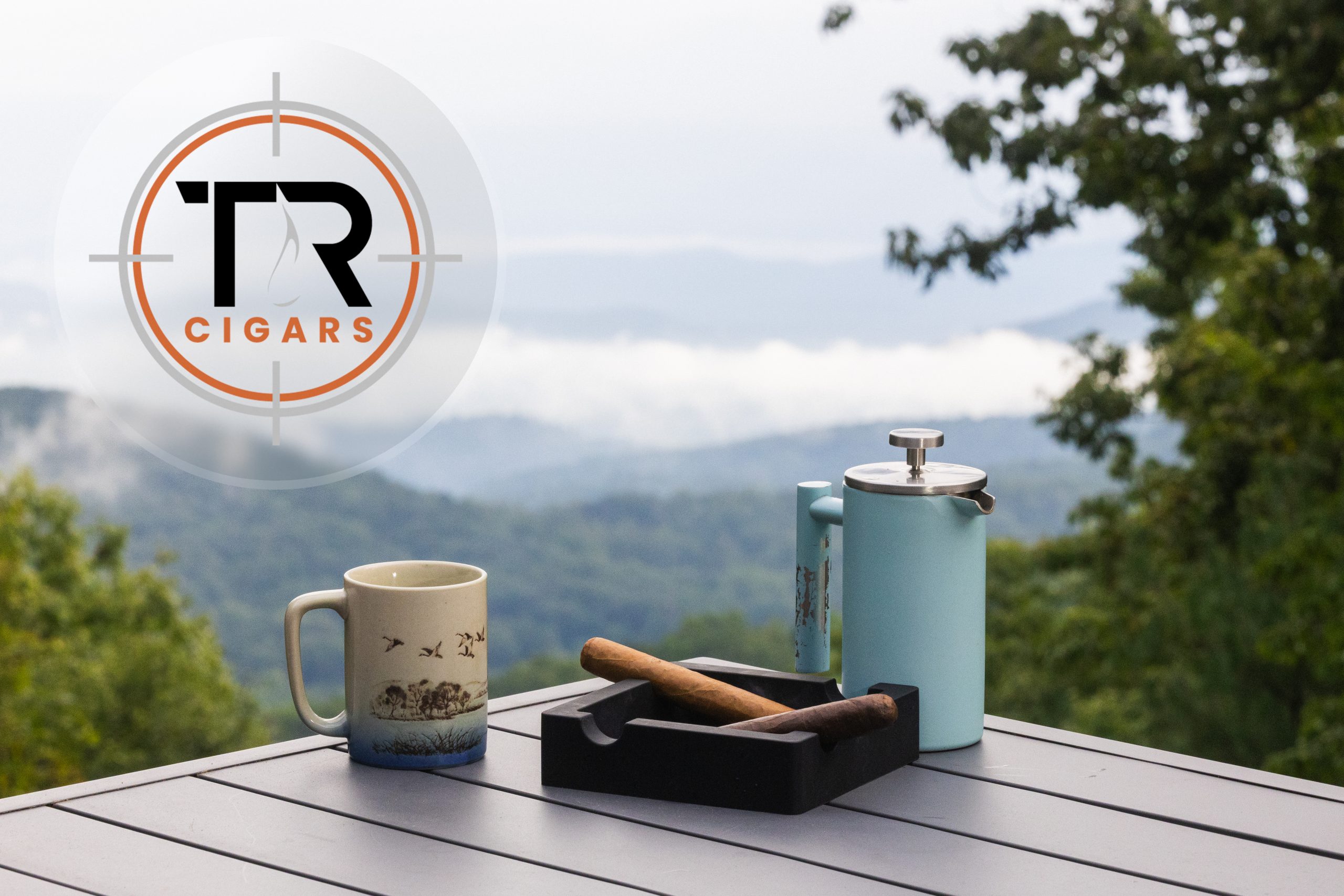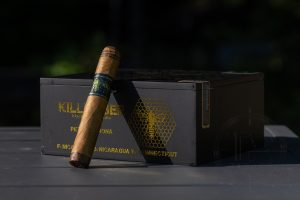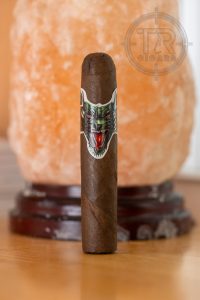Part 2: Why You’re Paying Double for Less
Our recent blog post about why TR Cigars will no longer carry boutique cigar brands generated significant response from our members and the broader cigar community. Many of you asked excellent questions about the specific economic factors that make boutique cigars so expensive compared to established craft and legacy brands.
Today, we’re pulling back the curtain on the business model that results in consumers paying premium prices for cigars that often lack the quality control, vertical integration, and value proposition of established manufacturers.
This isn’t about attacking anyone—it’s about helping you understand where your money goes when you buy a cigar, and why some cigars cost twice as much despite offering less.
Understanding Vertical Integration: The Foundation of Value
The cigar industry has a term that explains much about pricing: vertical integration. This refers to how many steps of the cigar-making process a company directly controls. The more steps they control, the better they can manage quality and cost.
The Complete Cigar Supply Chain:
- Tobacco farming – Growing and harvesting tobacco
- Selection process – Choosing quality leaves
- Fermentation – Processing tobacco to develop flavor and remove harshness
- Aging – Storing tobacco for months or years to develop complexity
- Blending – Creating recipes and flavor profiles
- Manufacturing – Actually rolling the cigars
- Quality control – Ensuring consistency
- Distribution – Getting cigars to retailers
Legacy Brand Integration:
Companies like Davidoff, Arturo Fuente, Padrón, Drew Estate, and other established manufacturers control most or all of these steps. They own farms, control fermentation facilities, run aging warehouses, employ master blenders, operate their own factories, and have established distribution networks.
Result: Direct control = lower costs + better quality control = better value for consumers
Boutique Brand Reality:
Most boutique companies control few (if any) of these steps. A typical boutique operation:
- ❌ No farms (they buy tobacco on the market)
- ❌ No fermentation facilities
- ❌ No aging warehouses
- ❌ Limited blending expertise
- ❌ No manufacturing facility (they contract with factories)
- ❌ Minimal quality control (they receive finished cigars)
- ❌ No established distribution
Result: They’re essentially middlemen ordering cigars from contract manufacturers and reselling them with significant markups at each step.
The Real Numbers: A Side-by-Side Comparison
Let’s examine the actual economics using real-world numbers we see as retailers.
Boutique Cigar Pricing Model:
Step 1: Contract Manufacturing
- Boutique company orders cigars from contract factory
- Factory produces cigar with their markup built in
- Cost to boutique company: $4.00 per cigar
Step 2: Boutique to Retailer (Wholesale)
- Boutique companies typically use “keystone pricing” (100% markup)
- Wholesale cost to retailer: $8.00 per cigar
Step 3: Retailer to Consumer
- Following industry standard markup
- Retail price to consumer: $16.00 per cigar
Step 4: Shipping Costs (The Hidden Expense)
- Boutique companies charge shipping regardless of order size
- Typical shipping: $25-40 for small orders (1-6 boxes)
- We’ve paid as much as $90 shipping for 300 cigars with no boxes
- No free shipping threshold—even large orders incur full shipping charges
- These costs must be absorbed by retailers or passed to consumers
Real Example: Order of 300 boutique cigars:
- 300 cigars @ $8 wholesale = $2,400
- Shipping: $90
- Total retailer cost: $2,490 ($8.30 per cigar after shipping)
- Retail at $16 each = $4,800 to consumers
Legacy Brand Pricing Model:
Their Vertical Integration Advantage:
- Own or control farms (lower tobacco costs)
- Control fermentation and aging (quality + efficiency)
- Own manufacturing facilities (no middleman markup)
- Established distribution network (economies of scale)
- Actual production cost per cigar: $2.00-3.00
Legacy to Retailer (Wholesale):
- Can offer better pricing due to vertical integration
- Wholesale cost to retailer: $4.00 per cigar
Retailer to Consumer:
- Industry standard markup
- Retail price to consumer: $8.00-10.00 per cigar
Shipping:
- Free shipping when reasonable minimum order is met
- Professional logistics partnerships = efficient delivery
- They understand retailer economics and build relationships
Real Example: Order of 300 legacy brand cigars:
- 300 cigars @ $4 wholesale = $1,200
- Shipping: $0 (free with minimum met)
- Total retailer cost: $1,200 ($4.00 per cigar)
- Retail at $8-10 each = $2,400-3,000 to consumers
What This Means for You: The Consumer Impact
Let’s be clear about what you’re actually getting with each model:
When You Buy a $16 Boutique Cigar:
- The factory that made it got ~$4
- The boutique company marked it up 100%
- The retailer marked it up again
- Shipping costs were factored in
- You paid $16 for a cigar that cost $4 to manufacture
- No guarantee the boutique company has quality control systems
- Unknown whether they’ll be in business next year
- Brand has little to no recognition or established reputation
- Retailer had to take a risk on an unknown product
When You Buy an $8-10 Legacy Cigar:
- The manufacturer controls the entire process
- They’re operating at efficient scale with lower costs
- Multiple quality control checkpoints throughout production
- Decades of reputation and consistency
- You paid $8-10 for a cigar from a company with proven expertise
- Brand recognition and established reputation
- Retailer can confidently stand behind the product
- Company will be around for your next purchase
Even if both cigars were constructed identically with identical tobacco, the legacy brand offers better value.
But here’s the reality: they’re NOT constructed identically. Legacy brands have:
- Better tobacco sourcing (direct farm relationships)
- Proper fermentation (their own facilities)
- Adequate aging (they own warehouses and can afford to age properly)
- Master blenders (decades of experience)
- Skilled torcedores (experienced rollers in established factories)
- Quality control (multiple checkpoints in their own facilities)
The Marketing Burden: Another Hidden Cost
There’s another economic reality that affects retailers and consumers:
Legacy Brands:
- Have spent decades building brand recognition
- Consumers ask for them by name
- Ratings and reviews are readily available
- Word-of-mouth reputation is established
- Marketing has already been done
- Easy for retailers to sell
Boutique Brands:
- Unknown to most consumers
- No established reputation
- Limited (if any) professional reviews
- Must be hand-sold by retailers
- Require explanation and education
- Harder for retailers to sell
Question for consumers: Would you rather pay $16 for an unknown cigar that your retailer is struggling to sell, or $8-10 for a proven brand that other smokers specifically seek out?
The Shipping Problem: Death by a Thousand Cuts
Let’s dig deeper into how shipping costs compound the pricing problem.
Most Boutique Companies’ Shipping Philosophy:
- “Shipping is the retailer’s problem”
- No free shipping regardless of order size
- Often use inefficient shipping methods
- Sometimes ship without proper packaging (increasing damage risk)
- No consideration for retailer economics
Real Examples from Our Experience:
- $25 shipping for 1-6 boxes (adds ~$4-25 per box to cost)
- $90 shipping for 300 loose cigars (adds $0.30 per cigar)
- Damaged cigars from poor packaging (total loss)
- Delayed shipments with no communication
Legacy Company Shipping Philosophy:
- “We’re partners with our retailers”
- Free shipping at reasonable order minimums
- Professional packaging and logistics
- Consistent, reliable delivery
- Communication when issues arise
Impact on Pricing: Even that “modest” $25 shipping charge on a small order adds significant per-cigar costs that must be recouped:
- 1 box order (25 cigars): +$1.00 per cigar
- 3 box order (75 cigars): +$0.33 per cigar
- 6 box order (150 cigars): +$0.17 per cigar
When you’re already paying $8 wholesale for a boutique cigar, adding even $0.17-1.00 in shipping costs pushes the true cost to $8.17-9.00 before retail markup.
Meanwhile, the legacy brand at $4 wholesale with free shipping stays at $4.00 true cost.
Why Even “Perfect” Boutique Cigars Don’t Justify the Price
Here’s the crucial point: Even if a boutique company produced absolutely flawless cigars with perfect construction, ideal fermentation, and optimal aging, the pricing model still doesn’t make economic sense for consumers.
You would be paying:
- 100% markup from boutique company (they’re a middleman)
- Standard retail markup
- Hidden shipping costs
- Premium for an unknown brand
- Risk that the company won’t exist long-term
For what? A cigar that cost the boutique company $4 to purchase from a contract manufacturer.
Compare that to a legacy brand where:
- No middleman markup (they are the manufacturer)
- Efficient production at scale
- Better quality control
- Established reputation
- Long-term stability
- Often superior tobacco due to direct farm relationships
The math simply doesn’t support boutique pricing, even in a best-case scenario.
The Retailer’s Dilemma
At TR Cigars, we face difficult decisions about what to stock. Here’s our reality:
When We Stock Boutique Cigars:
- Pay $8+ per cigar wholesale (plus shipping)
- Must retail at $12-15 to maintain margins
- Harder to sell (unknown brands)
- Higher risk (will the company exist next year?)
- If quality issues arise, often poor company support
- Taking up humidor space that could hold proven products
When We Stock Legacy/Craft Cigars:
- Pay $3-5 per cigar wholesale (free shipping)
- Can retail at $7-12 and maintain margins
- Easier to sell (brand recognition)
- Lower risk (established companies)
- Excellent company support if any issues
- Products our members actively seek out
- Confidence in long-term availability
From a business standpoint, why would we choose the first option?
More importantly: Why would we ask our members to pay double for the first option?
What This Means for TR Cigars Members
Our commitment to you is simple: we curate our selection to offer the best possible value for your investment. That means:
✓ Cigars from vertically integrated manufacturers who control quality at every step
✓ Fair pricing that reflects actual value, not middleman markups
✓ Established brands with proven track records and consistent quality
✓ Products we can stand behind with confidence
✓ Companies that will be here when you want to repurchase your favorites
When you select a cigar from our humidor at TR Cigars, you can be confident that:
- You’re getting fair value for your money
- The manufacturer controls quality from farm to finished cigar
- The company has proven staying power
- We can answer detailed questions about the product
- If any issues arise, the manufacturer will address them
- Your favorite cigars will still be available next year
The Bottom Line
The boutique cigar pricing model is fundamentally flawed for consumers:
You pay more for:
- Less vertical integration
- Higher middleman markups
- Additional shipping costs
- Unknown brands with no track record
- Higher risk of company failure
- Often inferior quality control
You could pay less for:
- Full vertical integration
- Direct manufacturer pricing
- Free shipping to retailers
- Established brands with decades of reputation
- Proven company stability
- Superior quality control systems
Even if boutique cigars were constructed perfectly (which our experience shows they often are not), the economics simply don’t favor consumers.
How to Make Informed Decisions
Whether you shop with us or elsewhere, ask these questions:
- Does this company manufacture their own cigars? If not, you’re paying middleman markup.
- What’s the wholesale-to-retail markup? If a shop seems to be charging too much, it might be because they paid too much.
- How long has this company been in business? Longer track records suggest better stability.
- Can the retailer explain the tobacco sourcing and aging? If they can’t, it’s likely because the boutique company couldn’t either.
- Is there a comparable cigar from an established brand? Almost always, the answer is yes—and it costs less.
Our Continued Commitment
We remain dedicated to discovering and offering exceptional cigars from established craft and legacy manufacturers who offer genuine value. Every cigar in our humidor represents a company that:
- Controls their quality through vertical integration
- Prices fairly based on actual value
- Has proven their staying power
- Maintains professional relationships with retail partners
- Stands behind their products
We’re not interested in selling you expensive mysteries. We’re interested in offering you proven quality at fair prices.
TR Cigars is located in Northeast Georgia, just outside the German town of Helen, GA. Our carefully curated selection represents only the finest craft and legacy brands that meet our exacting standards for construction, value, and company integrity.
Questions about our cigar selection philosophy or the economics of cigar pricing? We’re always happy to discuss our curation process and help you understand what you’re really paying for.






